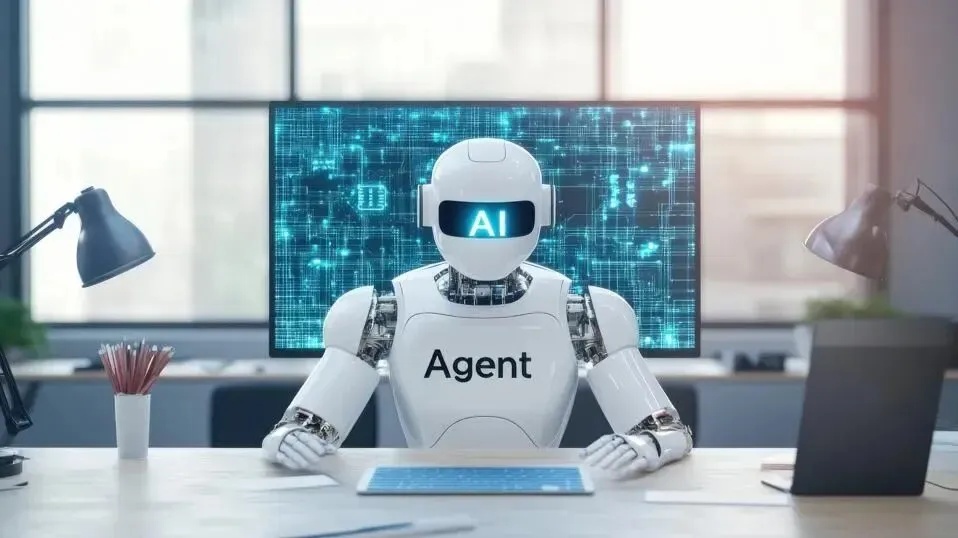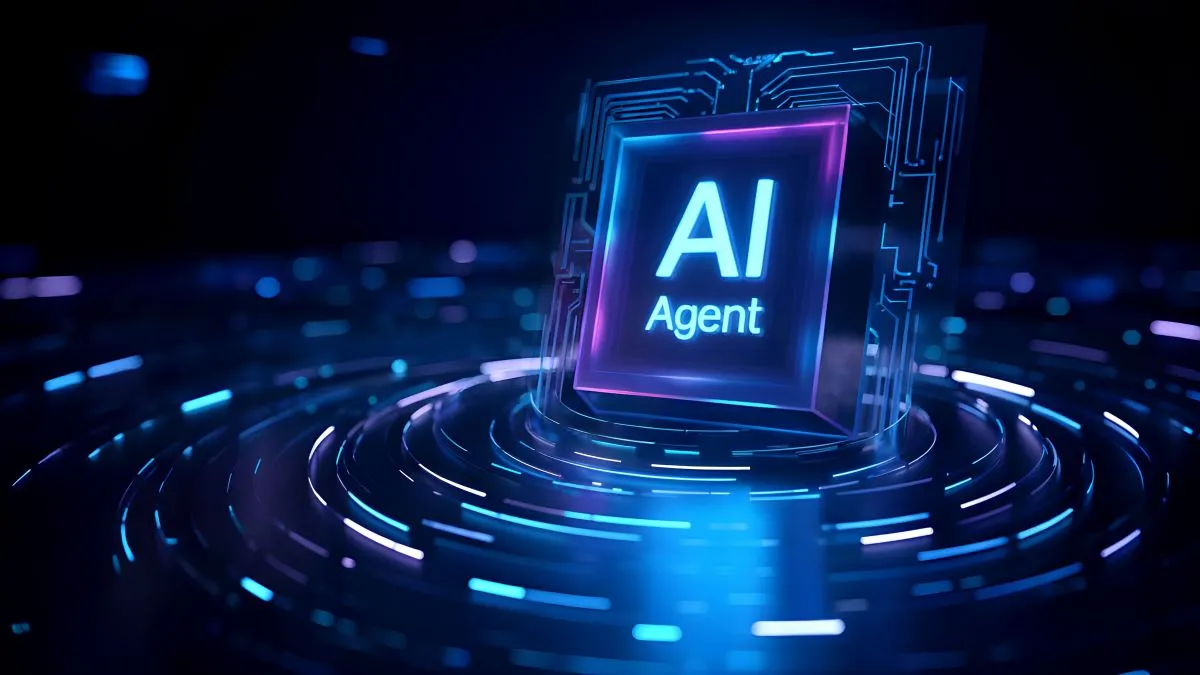Artificial Intelligence (AI) is no longer a distant vision of the future—it’s here, evolving rapidly, and poised to become an integral part of how businesses operate. Among the most transformative developments is the emergence of AI agents—intelligent, autonomous systems that can perform complex tasks, interact with humans, and even make decisions on behalf of businesses. In 2025, AI agents are no longer experimental; they are entering the mainstream.
So, what exactly are AI agents? How will they change the business landscape? And more importantly, what must your business do to prepare for this new era?
Let’s break it down.
What Are AI Agents?
AI agents are autonomous digital systems capable of perceiving their environment, processing data, and acting upon it, without human intervention. Unlike traditional automation tools or chatbots, AI agents are designed to learn, adapt, reason, and collaborate.
Imagine an AI agent handling your customer queries, managing inventory, negotiating supplier contracts, or even training new employees. These are not just bots with scripted responses—they are smart, goal-driven assistants with the capability to operate across departments, learn from every interaction, and optimize performance continuously.
Key features of AI agents include:
- Autonomy: Operate without manual supervision.
- Being proactive means anticipating needs and taking action before they arise.
- Personalization: Adapt to individual users and contexts.
- Collaboration: Work with humans or other agents to achieve business goals.

Why 2025 Is a Tipping Point
In 2025, several forces are converging to push AI agents into the business spotlight:
- Maturity of foundational models like GPT-4, Claude, Gemini, and open-source large language models.
- Enterprise-ready infrastructure from platforms like Microsoft Azure, AWS, and Google Cloud to deploy secure, scalable AI tools.
- API-driven AI ecosystems are making it easier than ever to plug AI agents into existing software stacks.
- Affordable access to AI services for even small and medium-sized businesses (SMBs), leveling the playing field.
- Workforce challenges (e.g., remote work, hiring freezes, and talent gaps) are increasing the demand for AI-based assistance.
This is no longer just about big tech companies. AI agents are entering industries from retail to healthcare, manufacturing to media, and finance to education.
5 Ways AI Agents Will Transform Business Operations
1. Customer Service and Support
AI agents will revolutionize customer interactions. They can answer queries, resolve complaints, make recommendations, and escalate complex issues—24/7, in multiple languages, and with empathy. Unlike earlier chatbots, modern AI agents understand tone, context, and nuance, delivering a human-like experience.
2. Sales and Marketing Automation
AI agents can handle prospecting, lead qualification, follow-up emails, social media scheduling, and even product demos. They personalize messages at scale, analyze campaign performance in real time, and identify new market opportunities. This results in more leads, faster conversions, and better ROI.
3. Back Office Operations
From bookkeeping and compliance to HR onboarding and payroll management, AI agents can streamline repetitive, rules-based tasks. They reduce errors, save time, and improve accuracy, allowing human employees to focus on strategic work.
4. Decision Support
AI agents don’t just execute tasks—they assist with decision-making. They foresee trends, provide recommendations, and provide actionable insights by examining data patterns. They can even simulate outcomes, helping leaders make better, data-informed choices.
5. Workforce Augmentation
Instead of replacing employees, AI agents can augment human capabilities. For example, a marketing professional could collaborate with an AI content creator, or a project manager might rely on an AI agent to monitor timelines, allocate resources, and flag risks.
What Your Business Must Do Now
Integrating AI agents into your business requires more than adopting a new tool—it demands a strategic mindset shift. Here’s what your organization should start doing today:
1. Audit Your Current Workflows
Identify tasks that are repetitive, time-consuming, and rules-based. These are excellent candidates for automation by AI agents. Map out where human intervention is critical and where intelligent delegation is possible.
2. Invest in AI Literacy Across Teams
AI isn’t just for your tech department. Everyone from HR to marketing should understand the basics of AI agents—what they can do, how they work, and what risks they carry. Provide AI training and workshops to democratize knowledge and reduce fear.
3. Pilot Use Cases with Clear ROI
Start small. Choose one department or process where an AI agent can make a measurable impact. This could be a customer support agent that resolves 80% of tickets or a procurement agent that identifies cost-saving opportunities.
Track KPIs like:
- Time saved
- Response rates
- Customer satisfaction
- Cost reduction
- Employee productivity
4. Select Trusted AI Partners
Select platforms or vendors that offer robust security, transparency, and comprehensive enterprise support. Ensure compliance with data privacy laws (such as GDPR or India’s DPDP Act) and evaluate the ethical considerations surrounding AI deployment.
Ask vendors:
- Is the AI explainable?
- Can I customize its responses?
- Does it integrate with my CRM, ERP, or HRMS?
5. Design Human-AI Collaboration Workflows
The future isn’t AI vs. humans—it’s AI + humans. Define clear boundaries for decision-making, escalation protocols, and human override. Ensure that employees feel empowered, not threatened by AI agents.

Risks and Ethical Considerations
While the potential is immense, businesses must also address the risks of AI agent deployment:
- Fairness and bias: AI agents need to be taught on objective data.
- Security threats: Autonomous agents must not expose systems to external vulnerabilities.
- Loss of transparency: Ensure decisions made by AI agents are explainable and auditable.
- Workforce displacement: Reskill employees to move into creative, analytical, and supervisory roles.
Being proactive about these concerns will build trust with customers, employees, and regulators.
The Bottom Line: Adapt or Fall Behind
AI agents are not a passing trend—they are the next wave of business transformation. Businesses that embrace them today will:
- Cut costs
- Improve customer satisfaction
- Make smarter decisions
- Accelerate innovation
- Future-proof their workforce
Waiting too long means falling behind your competitors who already have intelligent agents working 24/7 to serve customers, optimize processes, and drive profits.
2025 is the year of action. Don’t just watch AI agents enter the business world—be among the pioneers who shape their impact.
Related Blog: India–US Trade Deal in Trouble as Tariffs Loom
Final Thoughts
The arrival of AI agents signals a shift as significant as the rise of the internet or the smartphone revolution. Whether you’re a startup founder, a retail manager, or a CEO of a mid-sized enterprise, your role now is to lead the transition—intelligently, ethically, and proactively.
Because in the coming months, the businesses that work with AI agents will outpace those that don’t.




